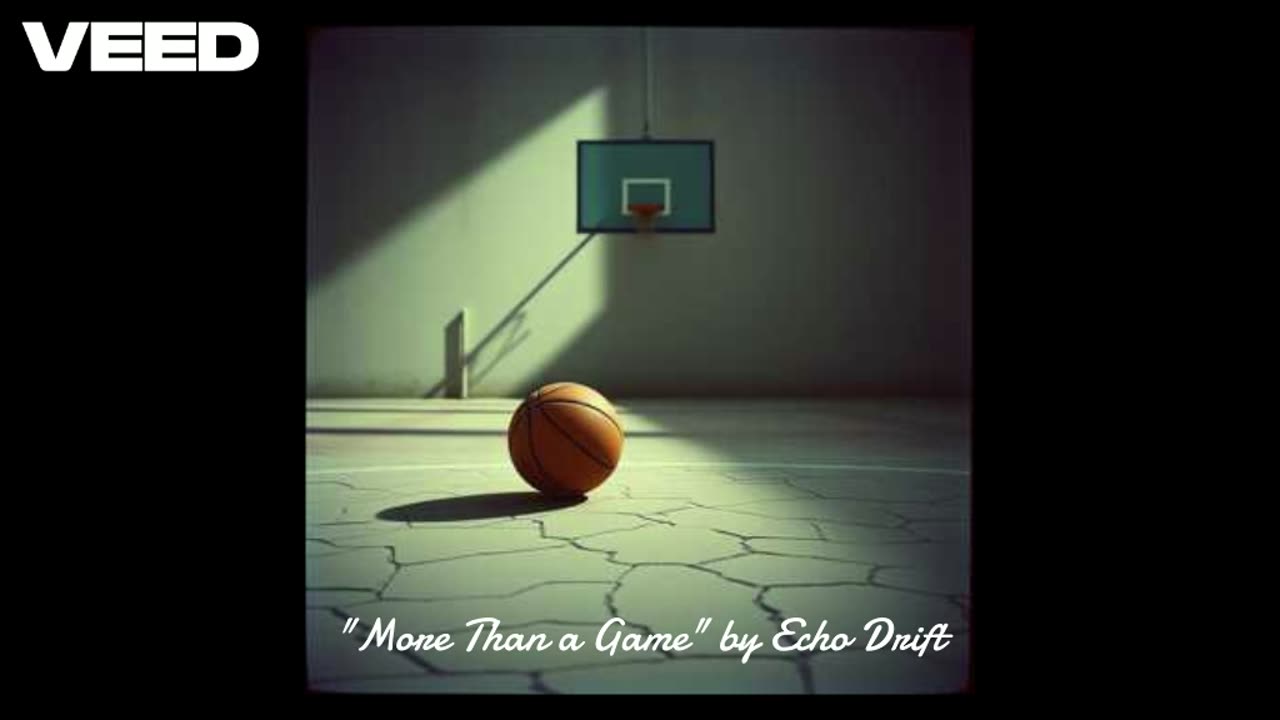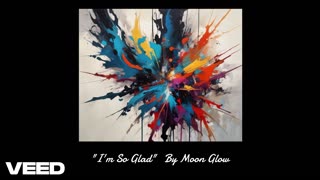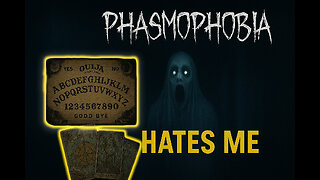Premium Only Content

"More Than a Game" by Echo Drift
"More Than a Game," penned by Samuel E. Burns and performed by Echo Drift, is a poignant lyrical commentary that transcends the boundaries of sports, delving into the societal pressures and expectations placed on athletes. The poem captures the raw essence of a basketball game, transforming a simple court into a metaphorical battlefield where unspoken rules and cultural narratives collide.
The opening lines set a deceptively straightforward scene—a court, two baskets, ten players, a ball—but quickly pivot to reveal the deeper stakes. Burns masterfully illustrates how the game becomes a canvas for broader societal issues, where an athlete’s skill is overshadowed by external judgments and symbolic weight. The repetition of “But the noise came anyway” serves as a haunting refrain, emphasizing the inescapable intrusion of societal expectations, regardless of the athlete’s intentions or performance.
The poem’s strength lies in its vivid imagery and economy of language. Phrases like “ice in her veins” and “hours no one counted except her” celebrate the athlete’s dedication and craft while subtly critiquing the tendency to reduce her to a symbol for others’ agendas. Burns doesn’t shy away from the tension between equity and vengeance, pointing out how calls for fairness can morph into demands for “payback” or “silence” rather than true sportsmanship. This critique is delivered with a balanced hand, avoiding preachiness while inviting reflection.
The structure, with its rhythmic repetition and concise stanzas, mirrors the cadence of a game—deliberate, intense, and relentless. The closing lines, “But she just plays— / and that should be enough,” are a powerful plea for the purity of sport, a call to let athletes exist as players rather than pawns in cultural debates. Yet, the repetition of this refrain underscores the tragedy: it’s not enough, not in a world where “they run the narratives.”
Echo Drift’s delivery, though not described in the lyrics themselves, is imagined as a perfect complement to Burns’ words—raw, emotive, and grounded in the pulse of the court. The poem’s universality makes it resonate beyond basketball, speaking to anyone who’s felt their craft or passion co-opted by external forces.
"More Than a Game" is a compelling blend of poetry and social commentary, a reminder that sports, like life, are rarely just about the game. It challenges readers to confront the “noise” and let the scoreboard speak for itself.
-
 3:25
3:25
New Wave Music
13 days ago“I’m So Glad” By Moon Glow
151 -
 2:34:22
2:34:22
TheSaltyCracker
5 hours agoDrug Smugglers Blown Up 9-03-25
83.1K174 -
 3:12:59
3:12:59
VapinGamers
4 hours ago $0.96 earnedGrim Trials - Game Review/Playthru - Rougelight Dungeon Crawler - !rumbot !music
21.2K -
 2:47:55
2:47:55
Mally_Mouse
11 hours ago🎮 Let's Play!! -- Jak 2 pt. 16
41.4K2 -
 52:23
52:23
MattMorseTV
6 hours ago $16.36 earned🔴The Cartels are SCREWED.🔴
107K128 -
 1:32:46
1:32:46
Badlands Media
19 hours agoAltered State S3 Ep. 44: Epstein Files, Corrupt Judges, and the College Grift
47.9K2 -
 21:09
21:09
Bearing
16 hours agoAustralian “Racist” Protest EXPLODES 💥 Glowies, Brawls & Media Spin 📣
25.7K33 -
 2:53:23
2:53:23
Tundra Tactical
4 hours ago $2.49 earnedTwo Vets, One Ouija Board, Zero Good Decisions
22.6K1 -
 3:49:59
3:49:59
Barry Cunningham
9 hours agoPAM BONDI & KRISTI NOEM HOST A PRESS CONFERENCE AND JOHN RICH JOINS THE SHOW!
44.9K37 -
 9:26:16
9:26:16
GrimmHollywood
13 hours ago🔴LIVE • GRIMM HOLLYWOOD • RETRO PS2 GAMES • GRIMMDY GAMES • BRRRAP PACK x FINALS RANKED GRIND
21.2K